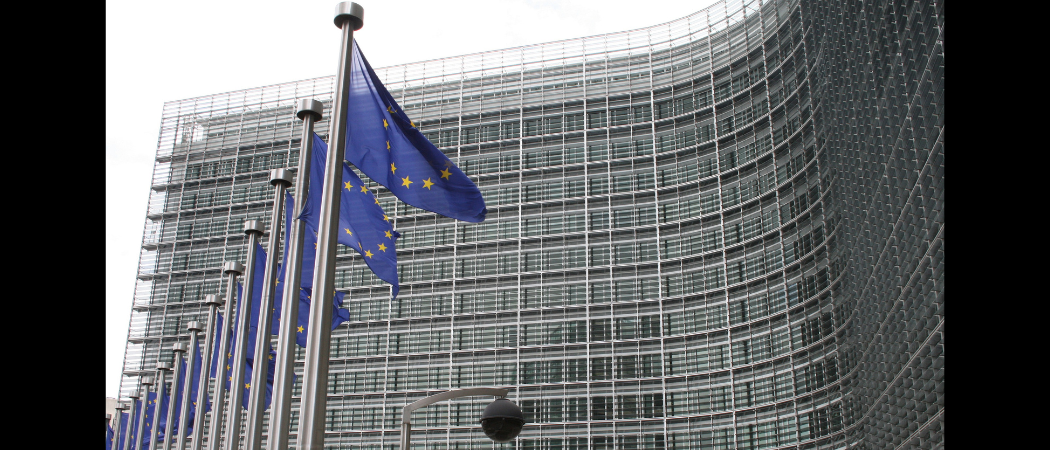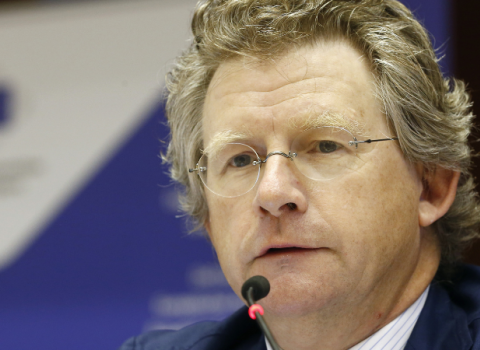In response to feedback, the EIC has loosened the ties between grant and equity investment in its Accelerator programme. Companies that win grants can now bid for EIC equity funding when the time is right

The Berlaymont building, the headquarters of the European Commission in Brussels. Photo: Richard Parmiter / Flickr
From 2024, start-ups will no longer be able to bid for grant-first funding under the European Innovation Council (EIC) Accelerator programme. Instead, this option will be integrated into the programme’s blended finance offer, in a recognition that many more applicants would like to separate decisions about grant funding and equity investment.
“The aim is to provide flexibility about the timing of the investment support,” said a spokesperson for the European Commission, which administers the EIC. “This is to align with the company’s investment needs, market developments, and the opportunities to attract co-investors.”
The EIC Accelerator supports start-ups and SMEs developing products and services where the risks involved are too high for private investors to provide all the substantial funding required. Grants of up to €2.5 million are offered for innovation activities and up to €15 million in equity investment for market launch and scale up, which comes from the European Investment Bank (EIB).
The most popular option is to apply for blended finance, a combination of a grant and equity investment, which must be decided at the same time. A very small number of companies bid just for equity, or for grant-only support. The latter option is often taken by UK companies, since they are not eligible for equity finance post-Brexit.
Then there is grant-first funding. This leaves the door open for an equity investment at a later date, generally once the technology under development has hit certain milestones. While not as popular as blended finance, this option has attracted plenty of interest, accounting for a quarter of applications in the most recent round.
So far, only a few grant-first applicants have completed the journey to a possible equity investment. “Out of 162 grant-first recipients, so far 14 have been proposed to receive investment support,” said the Commission spokesperson. However, “Many of the other grant-first projects are expected to reach the relevant milestones to be considered for equity investment.”
The decision to change the EIC Accelerator offer is not down to a fault with grant-first funding, but to open up blended finance.
“The experience of the first years of EIC implementation showed that there is a need for flexibility between grant-first and blended finance,” said the spokesperson. “In particular, for blended finance, the timing of the investment is not necessarily the same as the grant, as in most cases the investment is part of a funding round together with other investors.”
Under the new arrangements, applicants who require investment support – even if it is not an immediate investment support – are asked to apply for blended finance. “If selected, there would then be an exchange with the applicant company regarding the timing of the investment support,” the Commission said.
Decoupling the grant and equity options in the next iteration of the EIC Accelerator makes sense for Alex Chalkley, co-founder of Venturenomix a consultancy which helps companies apply for EU R&D grant funding. It gives more flexibility to the applicants. “They can focus on their near-term R&D goals without the often overwhelming task of securing large-scale equity funding,” he said.
It should also make life easier for EIC assessors. “They will have a more pertinent application for funding to evaluate, focused on the immediate need for support, rather than forecasting many years into the future.”
Right funding, right time
For ResoTher Pharma, a biotech company headquartered in Copenhagen, the grant-first option suited its stage of development. Set up in 2016 to commercialise research carried out at the William Harvey Research Institute in London, it is developing peptide drugs for treating chronic and acute inflammatory diseases.
With interesting animal studies and phase I clinical trials under its belt, the company last year started to raise investment and seek grant support to carry out a phase IIa study. With good private support, it only needed a relatively modest grant.
“The EIC grant will take us through phase IIa,” said Anders Kronborg, CEO. “Then, if we then have good data and move into IIb, the EIB matching equity investment becomes interesting. So this two-step process fits the way the company is at this point of time.”
Applying for grant-only support would have closed off this equity option, while a bid for blended finance would have involved finding matching private investment in advance of having phase IIa data. “The company has been successful so far by not asking for more money than we need, including from private investors,” said Kronborg. “If you start raising €60 million without being able to explain what you need it for, you hit credibility issues.”
The flexibility of grant-first funding also leaves other paths open for the company, such as a sale. “Like any company, we like to have as many options as possible, and grant-first gives us the option of having an equity investment at the next stage, if need be,” Kronborg said.
French biotech company ReST Therapeutics began by seeking blended finance from the EIC, to support development of drugs targeted at inhibiting specific receptors in the brain, to treatpost-traumatic stress disorder (PTSD) and neurodegenerative disorders such as Alzheimer’s disease. But the EIC jury wanted the company to focus its efforts solely on PTSD, and so the bid was withdrawn.
By this point it was also clear to Gilles Rubinstenn, founder and CEO, that this funding option was not ideal. “I’d heard from friends who had won blended finance that, since you had to negotiate both the grant and equity in parallel, you had to wait between 9 and 12 months to get the money to work with, and that’s not appealing for a fast-paced biotech.”
This also assumes a company has a lead investor(s) and is ready to close the round in which EIB is to be a co-investor “If you want to leverage the EIC equity, you realistically enter an 18-month period of fundraising,” Rubinstenn said.
When he came back to the EIC with another bid, he chose grant-first. “That fitted the development of the company so much more,” Rubinstenn said. And when this bid was successful in the autumn of 2023, the money was unlocked quickly. “It took less than two months to finalise the contract.”
This still leaves Rubinstenn with the challenge of hitting a pre-specified milestone in order to trigger the equity investment, and synchronising fund raising with the end of the grant. “You want to be able to grab the opportunities when they come, and not be prisoner of a set timetable,” he said.
That makes grant-first as an option within blended finance attractive. “The ideal for me would have been to get full blended funding, with the opportunity to come back, within the duration of the grant part, with a term sheet from a lead investor and start to negotiate the equity part,” he said. “If this is the direction EIC is moving in, it means it is implementing feedback I gave and I’m sure lots of others gave too.”
Elsewhere in the Ecosystem…
- French satellite and space debris tracking company Share My Space has raised €10 million in a series A round, and rebranded as Aldoria. The money will support expansion of the company’s network from four to 12 optical surveillance stations, and development of local teams. The round was led by Startquest Capital and included contributions from the European Innovation Council Fund and the French state’s Deeptech 2030 fund, managed by Bpifrance.
- A €500 million fund to support raw material supply chain development for battery production in Europe has been announced by EIT InnoEnergy, part of the European Institute of Innovation and Technology, and Demeter Investment Managers. At least 70% will go to mining, processing, refining and recycling projects in the EU and neighbouring countries. The remainder will focus on increasing raw material supply from partners such as Canada, Namibia, and Argentina.
- Poland can claim a new unicorn company in voice AI specialist ElevenLabs, which has announced the closing of an $80 million series B. The company, which is headquartered in the US, was founded in 2022 by Polish-born Mati Staniszewski, a former Palantir employee, and Piotr Dabkowski, an ex-Google machine learning engineer. The money will be used to advance research, expand infrastructure, develop new products and enhance safety measures for responsible and ethical AI development.





 A unique international forum for public research organisations and companies to connect their external engagement with strategic interests around their R&D system.
A unique international forum for public research organisations and companies to connect their external engagement with strategic interests around their R&D system.